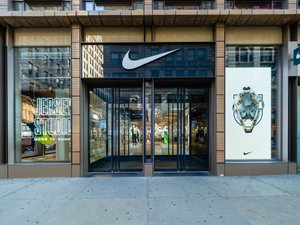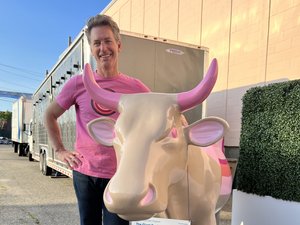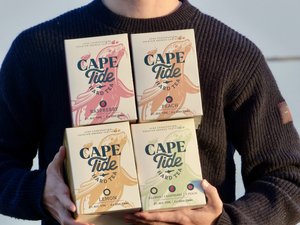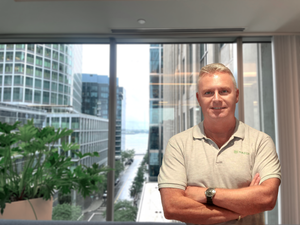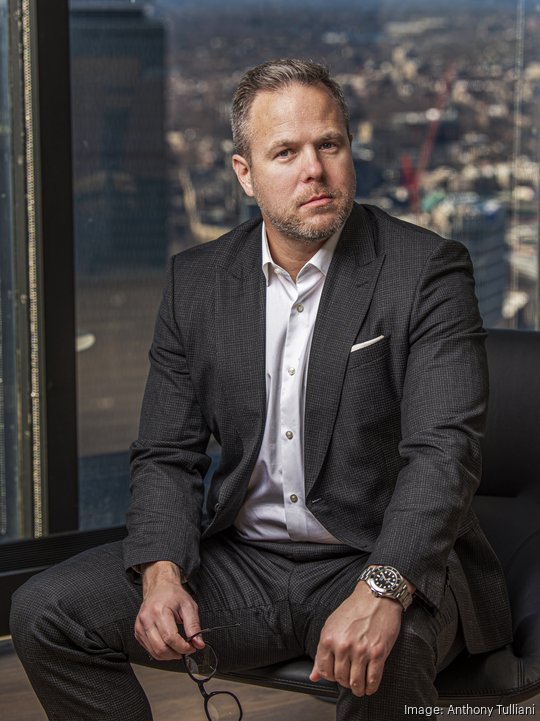
Before founding his law firm, Keegan Caldwell had some personal run-ins with the legal system. Those experiences led him to create a program to help recently released or soon-to-be released incarcerated people secure patents for their inventions.
As a high school student in Michigan, Caldwell was a good student, he said, but felt unchallenged and lacked some emotional tools to process adolescence in a healthy way. He turned to substance abuse and eventually dropped out of high school, progressing from smoking weed to psychedelics to opiates. Then he was offered an out. During what should have been his senior year of high school, in 1997, his friend enlisted in the Marine Corp. After meeting with a passionate recruiter, Caldwell also joined.
“That provided me with some level of reprieve from substance abuse because there was this structure,” Caldwell said. “And then when I got out of the service, I just went right back to the things that I knew.”
While his friends were finishing college, Caldwell said he didn’t have that aspiration, so he co-founded a construction business in Virginia. When he stepped away from that venture and moved back to Michigan, his run-ins with the law began. From 2003 to 2006, Caldwell said he was arrested 13 times and accumulated six felony convictions. He described himself as a “desperate person doing what I needed to do,” not a “criminal mastermind.”
Caldwell’s moment of clarity — the realization that he wanted to change his path — came to him on a wintry Michigan night when he was sleeping on a couch in an outpatient surgery ward at a hospital. “I thought, I don’t want to live like this anymore,” Caldwell said.
He entered a treatment center and then a shelter for homeless men, where he began college at Western Michigan University.
“I would show up. I pushed through. I believed in myself just enough to make it through each day,” Caldwell said. “At the same time, I’d also gotten involved in 12-step recovery … that fundamentally changed my life."
Caldwell then went on to earn his Ph.D in physical chemistry from The George Washington University. During an internship at the U.S. Patent and Trademark Office (USPTO) as a graduate student, Caldwell said, he found his passion for IP and his career path.
Beyond trademarks and patents
After his Ph.D. program, Caldwell got a job at a law firm in Vermont. Caldwell said that because he had a hard-science background, he was eligible to take the patent bar and that attending law school isn’t required to take the federal patent bar and practice before the USPTO. He passed. Because of the laws in Vermont, he was also able to complete a four-year apprenticeship program to take that state's bar exam.
He started his own firm, named Caldwell, seven years ago in a coworking space at MIT. Now the company has over 50 employees with offices in Boston, Burlington, Los Angeles and London.
Caldwell said the firm’s work goes beyond getting trademarks and patents for clients. His team wants their clients to find ROI for investing in intellectual property.
“Working with clients to understand what their business goals are and then helping them in view of their business goals, sort out what’s going to be the most valuable intellectual property for them to have,” Caldwell said.
The firm has come up with several innovations over the years, Caldwell said, including co-developing a software to predict which patent examiners would review an application at USPTO. This allowed the firm to tailor its applications and direct them to examiners with a higher approval rate. Caldwell said the firm gets 99.3% of the patents it applies for.
Now Caldwell is launching Incarcerated Innovators, a program to help recently released or soon-to-be released prisoners secure patents for their inventions. Caldwell said one innovator they worked with is creating an invention that would monitor a person taking pills via a smart device and then instantly reorder them.
Caldwell said that as his story became more public, his firm has been receiving letters from people who were formerly incarcerated asking for his help.
“As I was reading these letters, I saw an opportunity to give back to this disenfranchised community and to help folks that have the stigma of once an ex-con, always an ex-con,” Caldwell said. “Moving to get past that and to hopefully contribute to helping them build a new life.”
Sign up for The Beat, BostInno’s free daily innovation newsletter from BostInno reporter Hannah Green. See past examples here.
